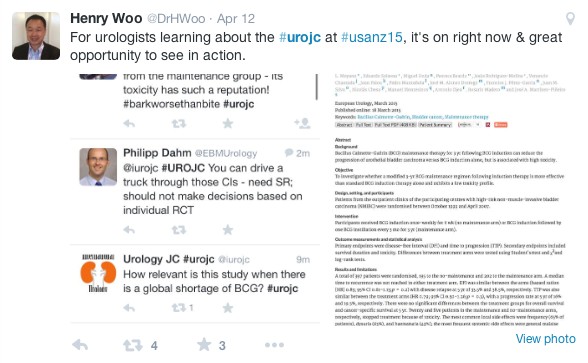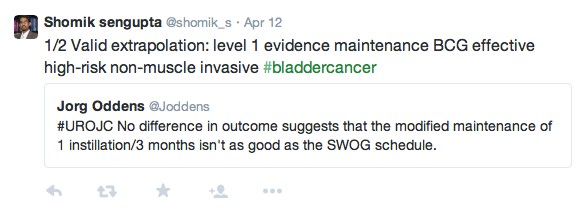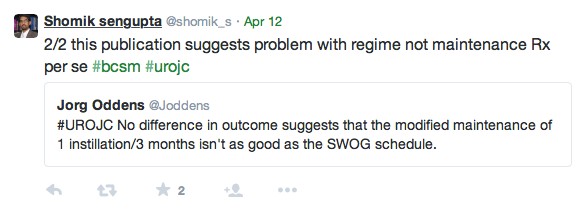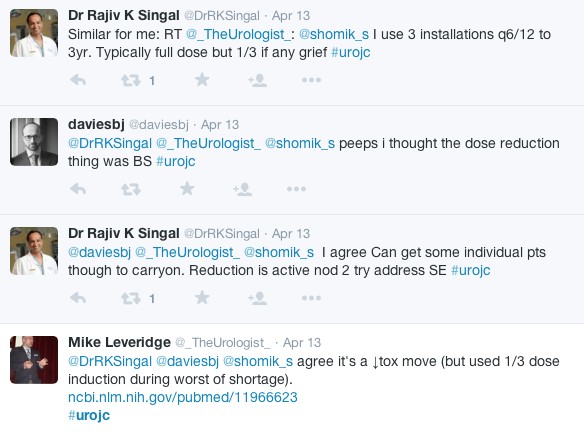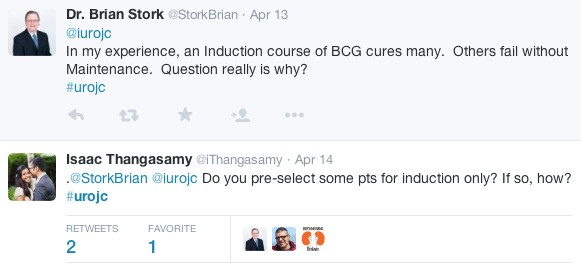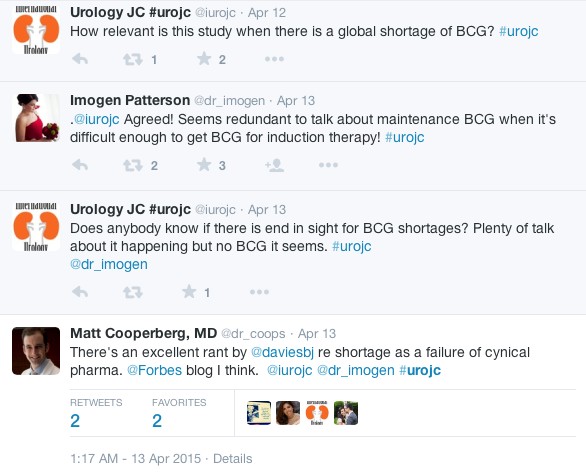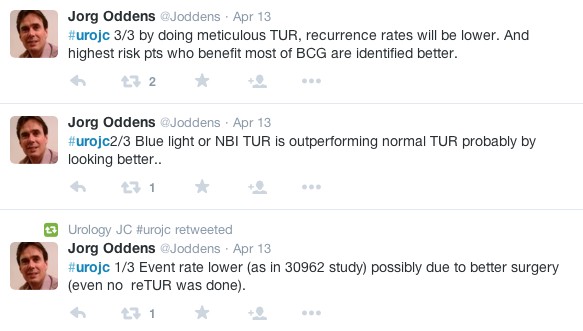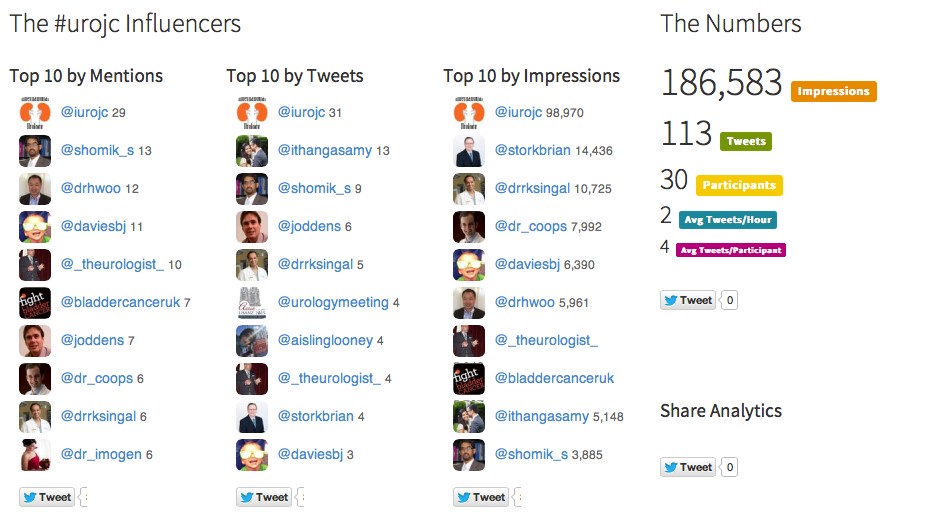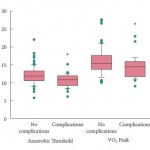Is maintenance BCG an unnecessary evil? Summary of the April 2015 #urojc
The current BCG shortage, and the effect this is having on our bladder cancer patients, is an issue that continues to weigh heavily on many urologists. With no immediate solution in sight, and limited availability, a variety of tactics are being advocated to optimally use the current supply.
The April 2015 International Urology Journal Club #urojc debate focused on the timely paper by Martínez-Piñeiro et al1. This paper reported the results of a randomised trial evaluating the outcomes of BCG induction followed by a modified three year maintenance regimen versus standard BCG induction alone in patients with high-risk non-muscle-invasive bladder cancer. The investigators concluded there was no observed decrease in recurrence and progression rates in those receiving just induction compared to induction and maintenance regimen.
This very topical debate kicked off on Sunday 12th April.
Coinciding with the USANZ Annual Scientific Meeting, this month’s debate gave both those who were live tweeting at the conference, and those learning about the benefits of social media as a new concept, the opportunity to see the #urojc debate in action.
One of the first points of discussion raised was the difference between the maintenance protocol used in the study, consisting of one BCG installation every three months for three years, and the standard SWOG schedule.
The lack of difference in outcome between the two groups raised the question as to whether this indicated that their modified maintenance protocol is less effective that the current strategies.
The theme of alternative maintenance schedules continued, with some variation in practice noted.
Some of the variability in maintenance may be due to the tolerability and side effects experienced.
Although there may be a degree of acceptance amongst patients if there is thought to be a chance of improvement in risks of disease recurrence or progression.
The reason for the variability of response to BCG therapy between patients remains unclear.
For the patient, the lack of understanding of why this is the case may be a cause of distress, especially when faced with adverse effects and toxicity.
Inevitably it was not long until the key on-going issue of the lack of available BCG was raised.
This issue continues to cause a lot of angst for both patients and their treating urologists, with no immediate solution evident. There may however be light at the end of a somewhat long tunnel with the restarting of production by Sanofi.
In the mean time, the downstream effects of the production delay continues to compromise the treatment options for bladder cancer patients.
As the availability remains largely outside of clinicians’ hands, perhaps our focus at present needs to be on other factors we can control in order to improve the outcomes for our bladder cancer patients.
This debate surrounding this paper has raised a number of key points that, in the face of the BCG shortage, are worth considering. Until the supply is re-established, the BCG we have needs to be optimally used – however perhaps the most effective maintenance schedule needs further investigation. Or perhaps, due to the variation in tolerability and effectiveness between individuals, maintenance therapy needs to remain a more fluid concept.
As always, the #urojc debate involved healthy international discussions. This gives the unique ability to understand the global viewpoints on the study findings, and the current BCG crisis. Analytics of the debate using the #urojc hash tag from the website www.symplur.com again demonstrated the excellent involvement from participants, with over 180,000 unique impressions.
Thanks to all of those who participated this month. We look forward to the #urojc May debate – I am sure it will be as lively as ever.
1. Martínez-Piñeiro L, Portillo JA, Fernández JM, et al. Maintenance Therapy with 3-monthly Bacillus Calmette-Guérin for 3 Years is Not Superior to Standard Induction Therapy in High-risk Non-muscle-invasive Urothelial Bladder Carcinoma: Final Results of Randomised CUETO Study 98013. European Urology March 2015 (Article In Press)



